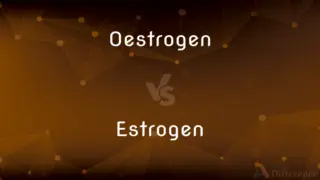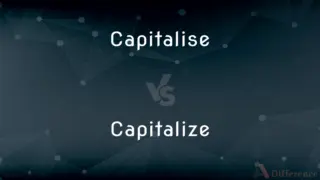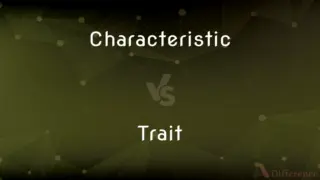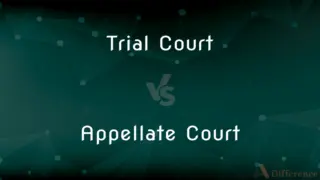Conform vs. Transform — What's the Difference?
By Fiza Rafique & Urooj Arif — Updated on April 16, 2024
Conform means to adhere to rules or standards, maintaining the status quo, while transform, on the other hand, implies a complete change or metamorphosis, often improving or evolving the original state.
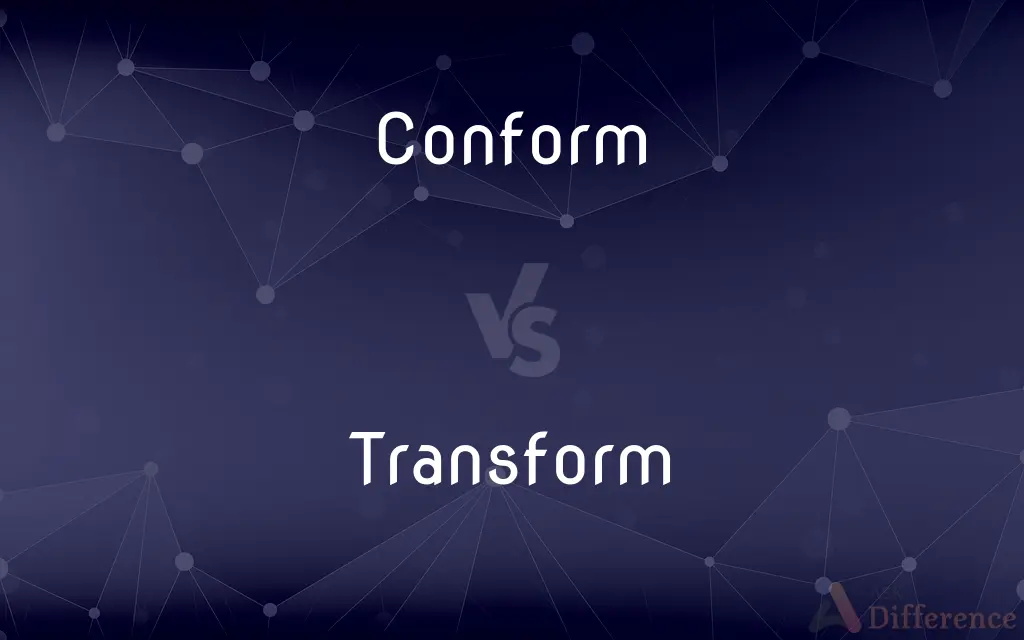
Difference Between Conform and Transform
Table of Contents
ADVERTISEMENT
Key Differences
Conform refers to the act of aligning one's actions or beliefs with group norms or societal standards, often to achieve harmony or acceptance. In contrast, transform suggests a profound or radical change in form, appearance, or structure, typically resulting in a significant shift or improvement.
Conforming is generally about fitting in and not disrupting the existing order, whether in behavior, practices, or ideas. On the other hand, transforming involves rethinking or radically changing something to achieve a new or better configuration, often breaking away from traditional or established norms.
In a social context, to conform might mean adopting the behaviors, attitudes, or attire that are considered acceptable by a particular group or society. Whereas, to transform in the same context could involve influencing or changing social norms and behaviors to foster a new way of thinking or acting.
In organizations, conformity can be seen in adhering to corporate policies or standards, which ensures consistency and efficiency. Conversely, transformation in an organization could refer to major strategic shifts, innovative processes, or cultural changes aimed at improving performance or adapting to new market demands.
The psychological impact of conforming can lead to stability and predictability in one's social environment, providing comfort and security. Transforming, however, might involve stepping out of comfort zones, which can lead to personal growth and the discovery of new opportunities.
ADVERTISEMENT
Comparison Chart
Definition
Align with standards or norms
Make a thorough or dramatic change
Aim
To fit in, maintain status quo
To innovate, improve, or evolve
Typical Context
Social behavior, practices
Business strategies, personal change
Impact on Status
Preserves existing conditions
Alters or enhances current conditions
Psychological Effect
Provides stability and security
Encourages growth and new possibilities
Compare with Definitions
Conform
Following rules or standards set by others.
She chose to conform to her company’s strict dress code.
Transform
Dramatically changing the way something is viewed or done.
The new policy transformed public opinion about renewable energy.
Conform
Adapting to fit into a group.
He conformed to the local customs to blend in during his travels.
Transform
Undergoing a complete and profound change.
The renovation transformed the old factory into a modern art gallery.
Conform
Ensuring uniformity.
The products were designed to conform to international quality standards.
Transform
Significant self-improvement.
She transformed her outlook on life through meditation and travel.
Conform
Being in harmony with others' opinions.
They had to conform to the majority decision during the meeting.
Transform
Change in form or nature.
The caterpillar transformed into a butterfly.
Conform
Upholding established practices.
The ceremony conformed to the ancient traditions of the region.
Transform
Implementing new ideas and technologies.
The industry was transformed by the advent of digital technology.
Conform
To be or act in accord with a set of standards, expectations, or specifications
A computer that conforms with the manufacturer's advertising claims.
Students learning to conform to school safety rules.
Transform
To be changed in form; to be metamorphosed.
His hair transforms to down.
Conform
To act, often unquestioningly, in accordance with traditional customs or prevailing standards
"Our table manners ... change from time to time, but the changes are not reasoned out.
We merely notice and conform" (Mark Twain).
Transform
To change markedly the appearance or form of
"A thick, fibrous fog had transformed the trees into ghosts and the streetlights into soft, haloed moons" (David Michael Kaplan).
Conform
To be similar in form or pattern
A windy road that conforms to the coastline.
A shirt that conforms to different body shapes.
Transform
To change the nature, function, or condition of; convert
A steam engine transforms heat into mechanical energy.
Conform
To bring into accord or agreement; cause to correspond or comply
"a woman who has conformed herself to the male-designed image of virtuous widowhood so that she can live in peace" (Jennifer Panek).
Transform
(Mathematics) To subject to a transformation.
Conform
To act in accordance with expectations; to behave in the manner of others, especially as a result of social pressure.
Transform
(Electricity) To subject to the action of a transformer.
Conform
To be in accordance with a set of specifications or regulations, or with a policy or guideline.
Transform
(Genetics) To subject (a cell) to transformation.
Conform
(transitive) To make similar in form or nature; to make suitable for a purpose; to adapt.
Transform
To undergo a transformation.
Conform
Of the same form; similar in import; conformable.
Care must be taken that the interpretation be every way conform to the analogy of faith.
Transform
The result, especially a mathematical quantity or linguistic construction, of a transformation.
Conform
To shape in accordance with; to make like; to bring into harmony or agreement with; - usually with to or unto.
Demand of them wherefore they conform not themselves unto the order of the church.
Transform
(transitive) To change greatly the appearance or form of.
The alchemists sought to transform lead into gold.
Conform
To be in accord or harmony; to comply; to be obedient; to submit; - with to or with.
A rule to which experience must conform.
Transform
(transitive) To change the nature, condition or function of; to change in nature, disposition, heart, character, etc.; to convert.
Conform
To comply with the usages of the Established Church; to be a conformist.
About two thousand ministers whose consciences did not suffer them to conform were driven from their benefices in a day.
Transform
To subject to a transformation; to change into another form without altering the value.
Conform
Be similar, be in line with
Transform
To subject to the action of a transformer.
Conform
Adapt or conform oneself to new or different conditions;
We must adjust to the bad economic situation
Transform
To subject (a cell) to transformation.
Transform
(intransitive) To undergo a transformation; to change in appearance or character.
Transform
(analysis) An operation (often an integration) that converts one function into another.
Transform
(by extension) A function so produced.
Transform
A transform fault.
Transform
To change the form of; to change in shape or appearance; to metamorphose; as, a caterpillar is ultimately transformed into a butterfly.
Love may transform me to an oyster.
Transform
To change into another substance; to transmute; as, the alchemists sought to transform lead into gold.
Transform
To change in nature, disposition, heart, character, or the like; to convert.
Be ye transformed by the renewing of your mind.
Transform
To change, as an algebraic expression or geometrical figure, into another from without altering its value.
Transform
Subject to a mathematical transformation
Transform
Change or alter in form, appearance, or nature;
This experience transformed her completely
She transformed the clay into a beautiful sculpture
Transubstantiate one element into another
Transform
Change in outward structure or looks;
He transformed into a monster
The salesman metamorphosed into an ugly beetle
Transform
Change from one form or medium into another;
Braque translated collage into oil
Transform
Convert (one form of energy) to another;
Transform energy to light
Transform
Change (a bacterial cell) into a genetically distinct cell by the introduction of DNA from another cell of the same or closely related species
Transform
Increase or decrease (an alternating current or voltage)
Share Your Discovery

Previous Comparison
Saucer vs. Plate
Next Comparison
Acre vs. HectareAuthor Spotlight
Written by
Fiza RafiqueFiza Rafique is a skilled content writer at AskDifference.com, where she meticulously refines and enhances written pieces. Drawing from her vast editorial expertise, Fiza ensures clarity, accuracy, and precision in every article. Passionate about language, she continually seeks to elevate the quality of content for readers worldwide.
Co-written by
Urooj ArifUrooj is a skilled content writer at Ask Difference, known for her exceptional ability to simplify complex topics into engaging and informative content. With a passion for research and a flair for clear, concise writing, she consistently delivers articles that resonate with our diverse audience.









